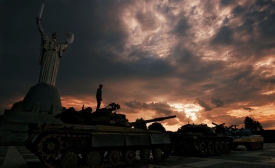baltic states
In the case of shared history, there is no way to suggest an appropriate narrative of any historical event that would be satisfactory for all counterparts. Digital rewriting, reevaluation, or reassertion of history is inevitability problematic. The only way to eliminate such conflicts and disconnect raised on social media is to emphasize “shared understanding and mutual openness.”

Olga Krasnyak discusses how disputes over historical memory in Russia and the Baltic States have played out on social media.
This fall has been marked by numerous “jubilees”: 25th anniversary of restored Baltic States’ independence, re-opening of Nordic-Baltic diplomatic relations and flourishing of public diplomacy. The three Baltic States’ ambassadors in Denmark shared their views with the BC’s international editor on the countries’ present and further steps in streamlining mutual relations.
Governor KK Paul inaugurated the Baltic Research Centre at Dev Sanskriti Viswa Vidyalaya in Haridwar today [...] He said the establishment of the Baltic centre would not only strengthen our cultural ties with Baltic countries but also encourage research and explore our heritage, which had remained suppressed, in our country as well as in the Baltic states.
Russia-watchers and Russians have spent much of the year debating what's behind Putin's adventurism in Ukraine, his meddling in eastern Europe's Baltic states, his support for anti-American dictators like Syria's Bashar al-Assad and North Korea's Kim Jong Un, and the headaches he is generally causing Western leaders.
Russia’s tactics, Grigas writes, take the form of oil sanctions, ‘gas isolation’ and dissuasion of Western firms from investing in Baltic energy projects. Business elites are co-opted through bribes, financial incentives and the ‘appeal’ of Russian business culture, which is network- rather than market-driven. More legitimately, Russian culture is also promoted vigorously.







